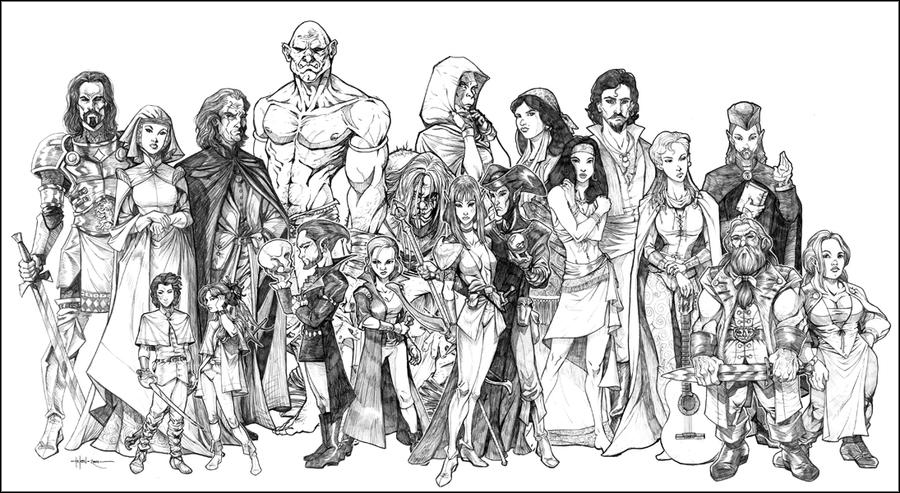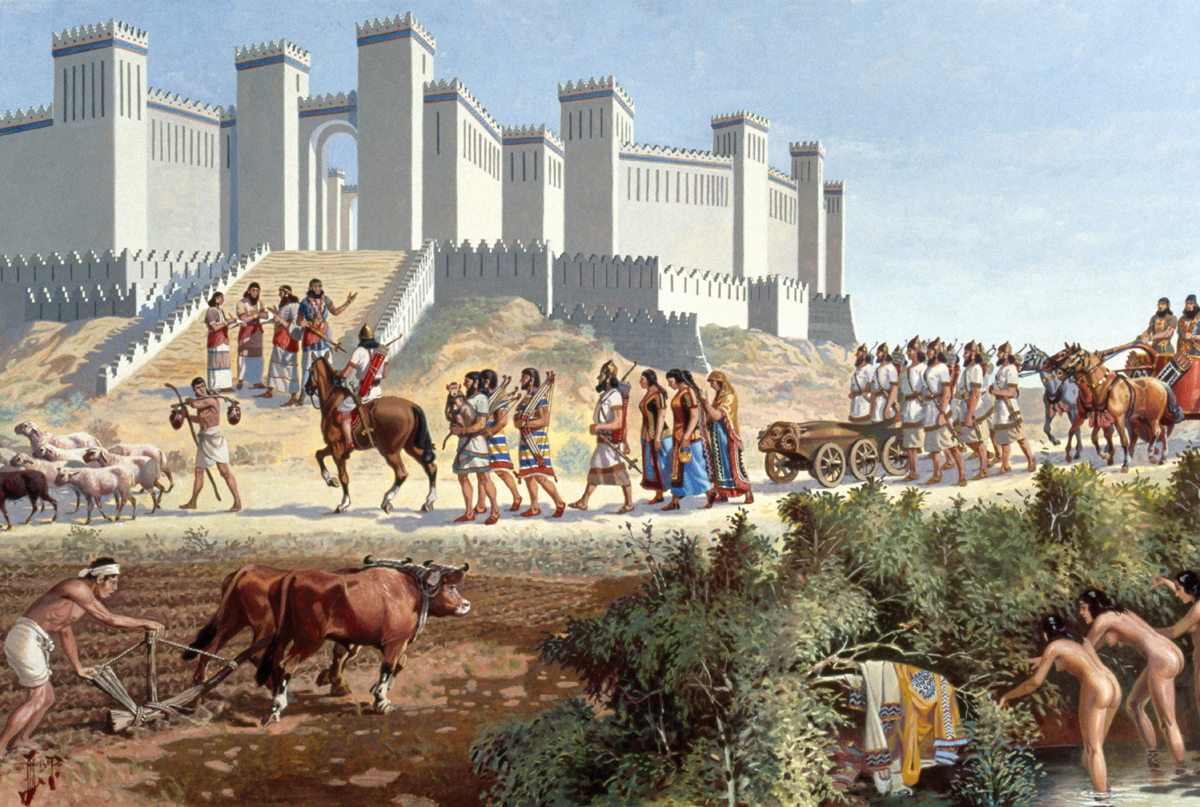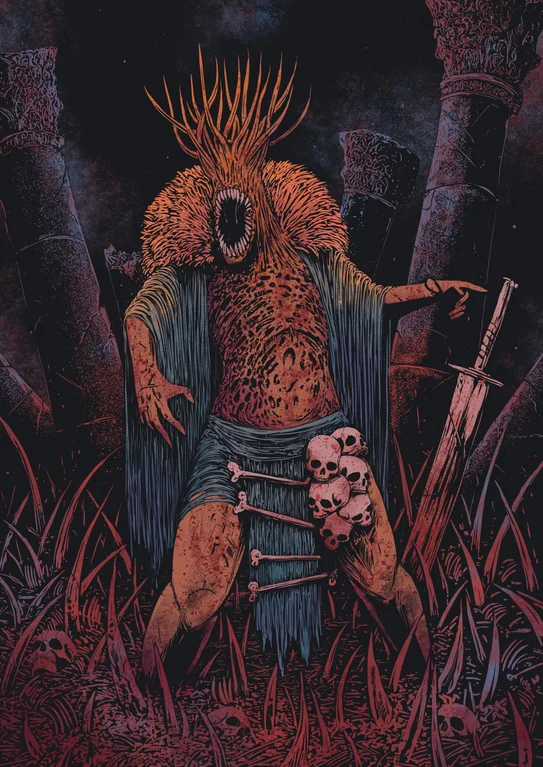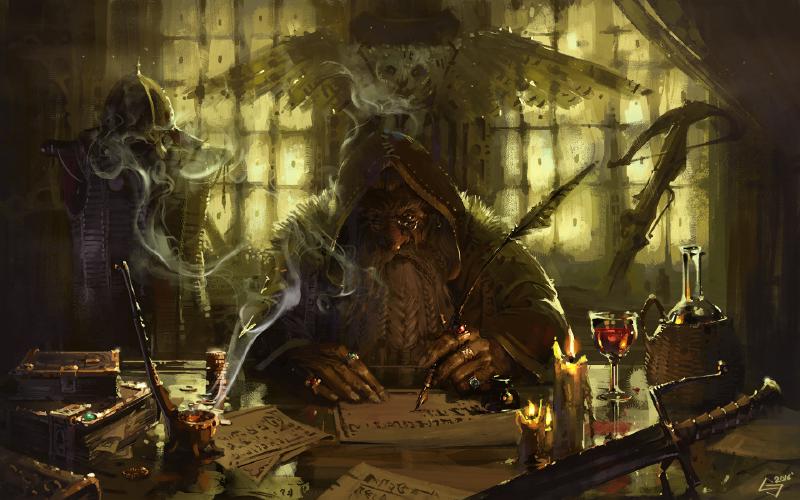“Never doubt that a small group of thoughtful, committed people can change the world. Indeed, it is the only thing that ever has.”
— Margaret Mead, Anthropologist and recipient of the Planetary Citizen of the Year Award in 1978
CCCitizenship is important. You are part of a whole, with the state or faction regarding you as one of their own. The civilizations that make up the Planar Council have terms they use for the various beings found across the planes, which determine the level of citizenship they can achieve.
In the end, it depends on two things: the nature of something’s brain, and the nature of their works.

First, let’s focus on brains.

Philosophers, anatomists, scientists, and eventually hemotheurgists and toposophists, have researched the idea of consciousness and intellect since time immemorial. Since then, it has been determined that there are three grades of intelligence that are found in intelligent life.
Sapience
Sapience is the ability to think and solve problems. At its core, intelligence in the strictest sense. It is the most basic of intelligence, but necessary for all other forms.
Sentience
Sentience is awareness, which includes the ability to experience pleasure and pain, and make predictions about the future. Most life on the planes could be classified as sentient. Life that is created, such as golems and other constructs, are primarily sapient with a hint of sentience.
Sophonce
Sophonce is metacognition, self-awareness, self-reflection, and the ability to think about one’s thinking. We, as humans, are sophonts. An argument could be made that some animals, such as crows, dolphins, and others, display hints of sophonce.
“All sophont life has value and is no different than ours. We all feel and bleed the same.”
— Angie Karan
The first qualifier for citizenship in the Planar Council is sophonce, as it is the determinator of one being able to both think for themselves and beyond their nature.
Taken into account, aside from the intelligence a being has, is their works. Works, in this context, would be culture, progress, and civilization. This is an important contributor as there are planes where a vast number of different sophonts exist alongside each other, though only a tiny number have created a civilization for themselves. A civilization existing is also a sign of cooperation over violence - a critical value that is a tenant of the Planar Council’s values.

Minor
Sophonts that have reached no form of civilization are classified as Minor Sophonts. Existing only in smaller collections of individuals, their presence is generally negligible. This does not prevent them from existing across multiple planes.
An example of a Minor Sophont would be the Craniferi, a pervasive and obnoxious cockroach-like sophont that originated on Terrus, the homeplane of Humanity. If they were to have a settlement, it is never anything more than shelter created from mud and feces. There is nothing they create on their own to give the impression that they have some sort of culture.
Minor Sophonts have very limited rights on Planar Council worlds, depending on the plane in question.
Medium
Sophonts that have a civilization that is confined to a singular region on a plane are classified as Medium Sophonts. Though they may have sizeable populations, the fact their civilization does not reach across the surface of their plane prevents them from obtaining Major Sophont status. While they may exist on planes outside of their homeplane, any civilization found there is negligible in comparison.
An example of a Medium Sophont would be the Boat Ogres of Rubia, a mammalian species of larger creatures with aquatic tendencies. They were originally primitive and scarce, but upon bearing witness to the boats of the offworld colonists from other planes, and their eventual method of construction, changed that.
Where a small vessel could easily hold as many as twenty members, the vessels the Boat Ogres construct can hold a single family, always less than ten. These boats have allowed them to spread to a larger area, but the settlements they have created are confined to a singular area on Rubia. There are unique cultures found in their different societies.
Medium Sophonts have limited rights on Planar Council worlds, depending on the plane in question. Some Boat Ogres have been granted citizenship on Rubia, but it is on an individual basis.
Major
Sophonts that have a civilization that has spread across most of a single plane are classified as Major Sophonts. They may exist on other planes, but the lack of any civilization existing offworld is what holds them back from being classified as Planar Sophonts.
An example of a Major Sophont would be the Wǎngluò of Zhīshù. Incredibly massive and intelligent spider-like beings, their civilization exists behind their creations, the Spidersap Treefolk. The Wǎngluòdi’s confinement to their world classifies them as Major Sophonts.
Major Sophonts have greater rights on Planar Council worlds, depending on the plane in question, but less than a full citizen.
Planar
Sophonts that have spread their society, culture, and civilization across more than a single plane are classified as Planar Sophonts.
All sophonts that are members of the Planar Council would be considered a Planar Sophont, having full access to all the rights and protections granted to them by the Council planes.
“My name is Ozymandias, King of Kings; Look on my Works, ye Mighty, and despair!”
— Ozymandias by Percy Bysshe Shelley
Each plane has unique relationships with their native life, and the general guidelines the Planar Council tries to uphold may not always be practiced. A Boat Ogre could get citizenship on Rubia for instance, but if one was to travel to Gōngjiā, home of the Zuìgāo Elves, they would most likely be unable to do the same, given the xenophobic attitude the Zuìgāo have.

There has been some criticism that these views make the Planar Council racist. “The goblins here are no different from the Belfry Goblins that are members of the Planar Council!”, some may say, and they could very well be correct. However, the Council does not enforce any sort of violence or negativity - those are instead practiced on a local level. The argument the politicians would make is, “The bare minimum of the requirements to be considered a member of the Planar Council prevents a great number of tragedies and turmoil amongst the council as a whole.”
There is one particular instance where the criteria of membership have made things worse on a plane.
Naraw is considered to be the homeplane of the Inconnu Gnomes, but they are not the plane’s original inhabitants. Hailing from elsewhere and sailing the star ocean between worlds, the Inconnu vessel crashed upon Naraw, much to the surprise of the original inhabitants, an elven species that calls themselves the Ffwng. While the Inconnu were peaceful, the Ffwng were not and frequently assaulted their new neighbors.
With their numbers remaining low in relation to the Inconnu, the Inconnu still dream of peace with the Ffwng in the future, though the Planar Council’s decision that the Inconnu were the primary civilization of Naraw will make it difficult.
While the focus of the setting is primarily on the member sophonts of the Planar Council, there is nothing precluding any sophont from being an adventurer… there are many that have found their place in legend and myth in fact!
“As human beings, we’re born believing that we are the apex of creation, that we are invincible, that no problem exists that we cannot solve. But we inevitably die with all our beliefs broken.”
— Shaun David Hutchinson, We Are the Ants
